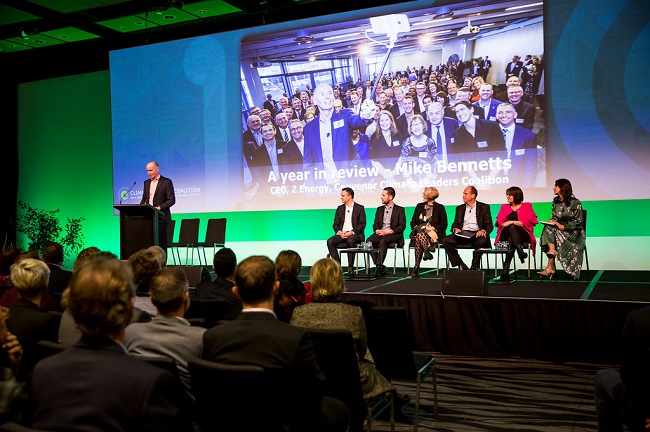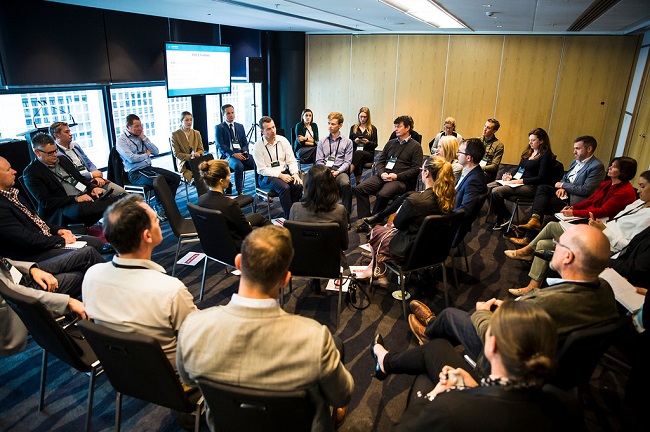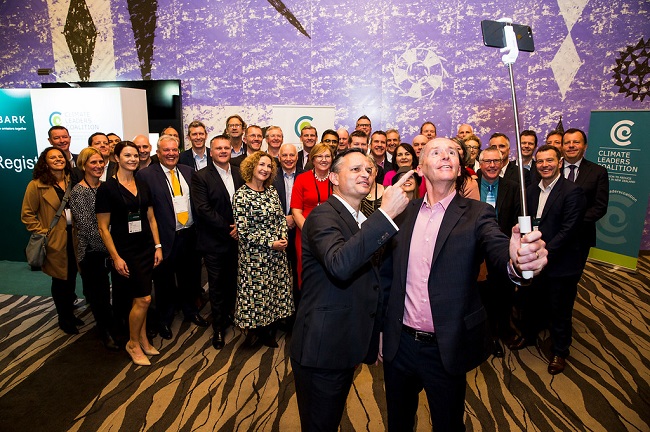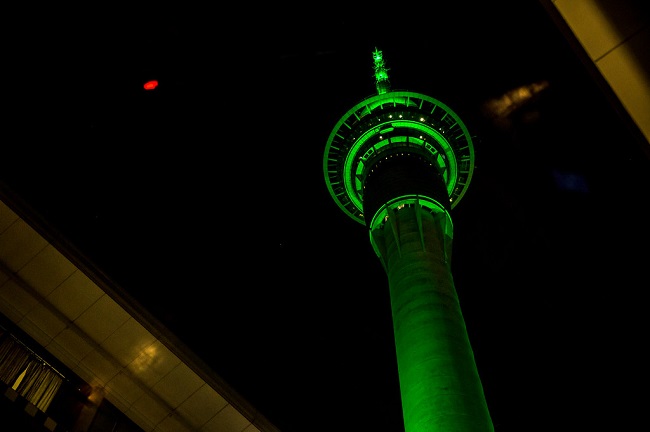Guest blog: A call to action – Embark 2019
“I will, I promise, and you can count on me” are the words Z Energy CEO Mike Bennetts encouraged us to use – instead of “I hope, I try and possibly” – in his opening remarks of Embark 2019. It was a day when 250 business leaders and service providers came together with a focus on lowering emissions.
“I will, I promise, and you can count on me” are the words Z Energy CEO Mike Bennetts encouraged us to use – instead of “I hope, I try and possibly” – in his opening remarks of Embark 2019. It was a day when 250 business leaders and service providers came together with a focus on lowering emissions.
Marking the first anniversary of the Climate Leaders Coalition (CLC), and held at CLC member SkyCity, it was a day packed with collaboration and learning. After a stirring mihi whakatau from Te Aroha Grace of Ngāti Whātua Ōrakei, Mike Bennetts implored attendees to focus on action rather than words.

Competitive spirit can help reduce emissions
In the morning sessions, we heard from Graeme Stephens, CEO of SkyCity how each business unit calculates their carbon costs, and how bonuses were calculated after offsetting costs – meaning there is a financial incentive (as well as the competitive spirit) for teams to do their best for the climate. Chris Dineen of Westpac spoke to the relatively new concept of “sustainability-linked loans”, where meeting sustainability goals is linked to a lower interest rate. Following on from that, we learned how sustainable projects and companies now have access to a wider pool of investors than their peers, as more and more investors direct their money only to sustainable funds.
Kiwis are less likely to voluntarily offset their flight emissions than UK passengers
Moving to carbon credits and offsetting, two of New Zealand’s self-declared largest carbon polluters (Air New Zealand and Z Energy) talked about their offsetting efforts, and how they maintain rigorous accounting of the credits. Did you know that exotic forests sequester carbon at seven times the rate of native plants, so Z invests in permanent forests of both types to strike a balance between carbon storage and biodiversity? One interesting takeaway from Air New Zealand – New Zealanders are less likely to voluntarily offset the carbon from their flights than UK passengers. That raises the question: should offsetting be built into fares?
A carbon limit on your credit card
In the session on business reputation and consumer behaviour change, we learned about some worldwide examples of innovation. One of those is Swedish fintech company Doconomy, which offers a credit card with a carbon cap – like a credit limit, but based on the carbon intensity of your purchases. Once you reach your self-imposed cap, you can no longer use the card for purchases.
Lively discussions in a fishbowl
The afternoon was full of engaging workshops facilitated by thinkstep ANZ and Catapult (you can hear more about those here). In the “fishbowl”, business leaders from Sistema and Naylor Love talked about setting meaningful targets, and service providers talked about how to start on the journey (engaging stakeholders is a great start!) and how the B Corp self-assessment can help to bring in other sustainability goals. In another workshop, participants explored how to ensure sustainability throughout the supply chain, by engaging with suppliers, building trust, and bringing suppliers on the journey with them. Finally, the conversation turned to influencing key decision-makers within organisations. We discussed the business case for sustainability, as well as looking at it from another angle: what are the risks of doing nothing? (Hint: there are lots of them!).

Before the final panel, Mike Bennetts returned to give a progress report on the first year of the Climate Leaders Coalition. Some results: 90% of members are measuring emissions, 71% are publicly reporting those; 71% of members are working with their suppliers to reduce emissions, and over half have set a public carbon reduction target. Importantly, the CLC members’ pledge has also been updated to reflect the 1.5 degree of warming target.

People activate people
The closing session of the day featured CEOs of Spark – Jolie Hodson and SkyCity – Graeme Stephens, the Editor in Chief of Stuff, Patrick Crewdson, SBC Executive Director Abbie Reynolds, and Climate Change Minister James Shaw.
One key takeaway: The government needs the CLC to reach its goals, and the CLC needs the government to keep pushing climate-friendly policy. As Minister Shaw put it: “People need to know that other people are working on it. That activates people”.
Hope, solutions, and accountability
There is also a role for media to play – and a good start is by not publishing the (non-)debate over whether climate change is happening. No other scientific issue is treated like that. “I think it’s disingenuous to run opinion pieces denying climate science, rather than adhering to usual journalistic principles of fairness and accuracy”, said Patrick Crewdson, prompting a round of applause from the audience..
Stuff has conducted research on climate change reporting, which shows that people want three things: hope, solutions, and accountability. Based on Embark 2019, hope and accountability are strong with this group. After lighting the Sky Tower green to symbolise our commitments, it’s now on to the solutions.

Simon Love, Sustainability Strategy at thinkstep ANZ
Contact: Simon Love, Sustainability Strategy at thinkstep ANZ
Phone:
Email:
